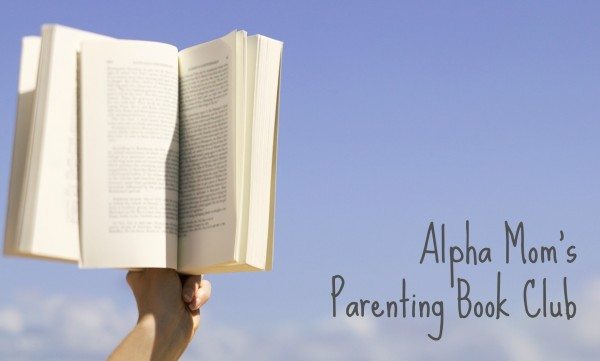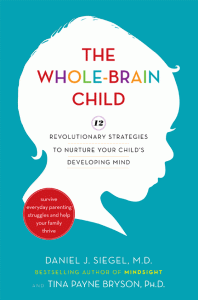
Alpha Mom Book Club: The Whole-Brain Child Book Review & Discussion

A Young Child’s Upstairs & Downstairs Brain

The thing I liked the best about The Whole-Brain Child was that the authors don’t tell parents to just throw their hands up to the sky and say, “Oh well. My child can’t help himself. It’s just his brain.” In fact the authors do the opposite, which is to show you how to use these moments as incentives to do the work as parents in helping children develop the faculties that result in appropriate behavior. (page 44)
The comic book style drawings throughout the book that described scenarios and interactions between parents and children are wonderful. If you are anything like me, you will recognize yourself in some of the examples. And I don’t mean the examples showing you what you should be doing. I was pretty shocked by how many times I thought I was being empathetic, but really was dismissing my children’s feelings. Seeing examples of interactions between a child and parent was somehow more illuminating than just reading about it.
Integrating Memories
One part of The Whole-Brain Child that I found helpful was the section on helping our children integrate their memories. The Siegel and Bryson go in depth about implicit memories, the ones that aren’t readily accessible but form “expectations about the way the world works, based on our previous experiences.” (page 72) An extreme example of this is PTSD. Not all implicit memories are bad, but when a negative experience happens, we’re not always aware how it has impacted our children. So when they then seem to over react to a situation and we have no idea why. This chapter alone was worth reading the book, in my opinion. I think it is essential to give our children tools to reframe their memories into ways that don’t get them stuck.
Cheat Sheet
The back of the book has a cheat sheet, or refrigerator sheet, that outlines the important points from the book. And further back in the book is a reference chart that is broken down by ages and stages of development, with specific tools for you to use for each of the twelve strategies for helping to integrate children’s brains.
The Whole-Brain Child is one of those books that I really wish were around when I first began my parenting journey. I think that I made a lot of situations more difficult because I didn’t really understand what was going on in my children’s undeveloped brains. Especially for one of my children, who was an epic-tantrum thrower, and ignoring him didn’t work. Now I know why. Fortunately at 17-years old, the days of him throwing himself on the ground, kicking and screaming are over.
Those of you who have read The Whole-Brain Child, what did you think of it? Did the concept of the upstairs/downstairs brain help you to understand what is going on with your child’s brain? Have you found yourself stopping to think about some of the things you read in the book before reacting to situation? I know I have on all counts.

